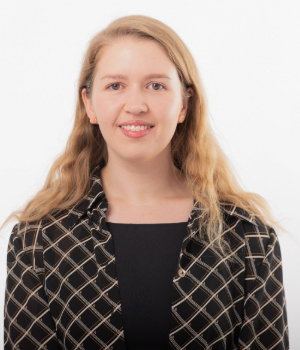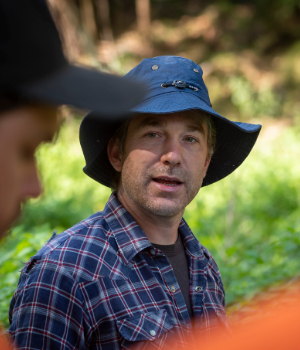Two researchers have received the 2024 Australian Academy of Science Aboriginal and Torres Strait Islander Scientist Award for their research on precision cancer treatment and the management of Australian wetlands.
The award recognises research in the physical and biological sciences of outstanding Aboriginal and Torres Strait Islander PhD students and early- and mid-career scientists.
Dr Justine Clark, Telethon Kids Institute
Aboriginal and Torres Strait Islander precision cancer research
Indigenous peoples in Australia and globally share experiences of reduced cancer survival rates and barriers to accessing cancer healthcare in comparison to non-Indigenous peoples.

“Aboriginal people are about 14% more likely to be diagnosed with cancer, compared with non-Aboriginal people, and also about 20% less likely to survive after diagnosis,” researcher and award recipient Dr Justine Clark said.
Precision cancer medicine is the use of an individual’s genetic profile to provide improved diagnosis, therapeutic decision making and long-term management of cancer, and is becoming an increasingly important part of cancer care in Australia. While precision cancer medicine has immense potential to improve cancer outcomes, Indigenous Australians still face barriers in accessing both standard and precision cancer medicine.
Dr Clark is a post-doctoral researcher in Indigenous genomics at Telethon Kids Institute, with a focus on Indigenous precision cancer research. Her research contributes to international efforts to improve Indigenous cancer health equity.
Māori researchers in New Zealand have begun to explore the potential for genomics-guided precision cancer medicine to improve outcomes for Māori peoples, and Dr Clark’s project brings together Māori New Zealander and Aboriginal Australian precision cancer researchers.
Dr Clark said that Indigenous-led precision cancer research provides a unique opportunity to create novel, tailored cancer care for Indigenous Australians and set future research priorities by characterising cancer types of the greatest burden of disease.
“This research must be guided by community priorities and aspirations, as well as clinical data identifying cancers that have the greatest burden on Indigenous Australians.”
Dr Joe Greet, University of Melbourne
Healing Water Country: developing a Traditional Owner-led billabong health assessment framework
Wetland health and sustainability are improved when Indigenous people lead the management of wetland systems according to award recipient Dr Joe Greet. This success is based on knowledge gained from managing and identifying with their land and waterscapes for millennia.

But the inclusion of Indigenous knowledge and Traditional Owners in the scientific investigation and management of freshwater environments in Australia remains limited, particularly in urban contexts.
Dr Joe Greet is working to change this by bringing together Traditional Owners, specifically the Wurundjeri Woi Wurrung people, and Indigenous scientists for on-Country workshops to share their knowledge and increase the role of Traditional Owners in water and land management.
“This is a culturally significant and innovative project as it recognises the efficacy and importance of Traditional Owner leadership in the scientific investigation and management of freshwater environments,” Dr Greet said.
His research aims to develop a Traditional Owner-led framework for wetland health assessment and management, using Melbourne’s degraded riverine wetlands (billabongs) along the urbanised lower Birrarung (Yarra River) as example ecosystems.
Dr Greet is working with the Wurundjeri people to preserve the last remaining billabongs in Melbourne, and said he is humbled to be receiving this award.
“I am most grateful for the Academy’s support to continue working with Narrap Rangers to develop a Wurundjeri-led billabong health assessment framework to better manage and help heal Country.”
Celebrating Indigenous scientists
Established in 2018, the Aboriginal and Torres Strait Islander Scientist Award aims to support research and the growth of research networks and international knowledge exchange. It supports interdisciplinary and sociocultural research that could straddle the social sciences and humanities.
Awards include up to $20,000, with additional support provided to attend the Academy’s annual Science at the Shine Dome event.
The award is also part of the Academy’s work to champion diversity and inclusion in the sciences and empower the next generation of scientists. This will strengthen the voice of science and support scientific excellence.
The 2025 award round is now open, and closes on 1 June 2024.








